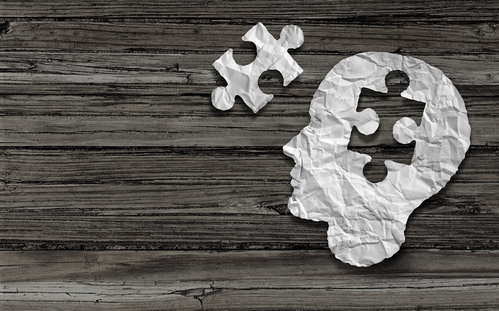
Cognitive Dissonance
The choice we made yesterday turned out to be not so good. Why do we persist?
“We don’t like to second-guess our choices, even if later they are proven wrong or unwise. By second-guessing ourselves, we suggest we may not be as wise or as right as we’ve led ourselves to believe. This may lead us to commit to a particular course of action and become insensitive to and reject alternative, perhaps better, courses that come to light. That’s why many people seek to avoid or minimize regret in their lives, and seek “closure”.
“We are engaging in cognitive dissonance. It’s the term coined by psychologist Leon Festinger in 1954 to describe “the feeling of psychological discomfort produced by the combined presence of two thoughts that do not follow from one another” (Harmon-Jones & Mills, 1999). Dissonance theory suggests that if individuals act in ways that contradict their beliefs, then they typically will change their beliefs to align with their actions (or vice-a-versa)”.1
We explore two areas in which cognitive dissonance plays a critical role in our lives; addiction and relationships
Addiction:
“In drinking and drug surveys, peers are perceived as drinking more and using more drugs than the respondent. Particularly in youth studies, this majority fallacy is often interpreted as an indication of peer pressure toward drinking and drug use. However, exaggerating the alcohol and drug behaviors of significant others may be a way of reducing cognitive dissonance. The behavior of most people deviates from their ideal norms. The ensuing dissonance can be alleviated by introducing the behavior of others as a third element in the cognitive field. Data from three Scandinavian surveys support the following two predictions based on the theory of cognitive dissonance: (1) The tendency to report that other people drink more than oneself is more marked in restrictive than in permissive communities. (2) On each level of alcohol intake, the tendency to report that other people drink more than oneself is stronger among respondents having negative alcohol attitudes than among respondents with positive attitudes to alcohol. The need to alleviate the cognitive dissonance caused by a discrepancy between actual behavior and normative standards is thus one of the mechanisms generating the majority fallacy: “I may not be perfect, but other people are still worse”. Feeling better than others does not necessarily amount to a pressure to turn bad”.2
Relationships:
“In marriage, cognitive dissonance is the difference between how you would like to be and how you are. For instance, “I am loving, compassionate, supportive, sexy, etc., yet I am not these things with you.”
“This aspect of cognitive dissonance isn’t bad; it can act as a motivation to be true to your deepest values, by making you behave in more loving and compassionate ways. Unfortunately, most people who divorce or go to marriage therapy choose to resolve their cognitive dissonance with something like this:
“Since I am unable to be my loving and compassionate self with you, you must be too selfish, insensitive, withholding, demanding, emotional, rigid, sick, or defective in some way.” This ill-fated resolution of cognitive dissonance only makes you both feel like victims and sends you searching online or in self-help aisles for a checklist that validates your suffering and a diagnosis that nails your partner”.3
What can be done?
Addiction:
John M. Grohol, “In these kinds of interventions, the therapy model most often used is to try and get people to understand their current attitudes and behaviors, the costs involved in holding these particular attitudes or engaging in the negative behaviors, role playing, exercises and homework design to help a person to become more aware and constantly challenge the attitudes and behaviors, and self-affirmation exercises. Most of these techniques share a common grounding and background in traditional cognitive-behavioral psychotherapy techniques”.
Relationships:
Steven Stosny, “Successful marriage is not about getting your partner to do what you want; it’s about being who you are, i.e., behaving according to your deepest values. For most people, this means being loving and compassionate to the people they love.
Happily, you have the best chance of getting your partner to do what you want by being who you are.
Marriage (and marriage therapy) run into a brick wall of cognitive dissonance when they focus on “getting your needs met,” or “getting the love you want.” They are more likely to have lasting success with focus on each of you being the partner you most want to be”.
This is where Counseling on Demand comes in. Overcoming addiction or managing a relationship can be a daunting task- even for the most motivated. Guidance and professional support can go a long way toward success.
We are online at CounselingonDemand.com
We are only a click away.
- John M. Grohol, Psy.D.Fighting Cognitive Dissonance & The Lies We Tell Ourselves, psychcentral
- Mäkelä K, Addiction.1997 Jun; 92(6):729-36.
Drinking, the majority fallacy, cognitive dissonance and social pressure (abstract) ncbi.nlm.nih
- Steven Stosny, Ph.D.Anger in the Age of Entitlement, Marriage Problems: How Can I Be Me When You’re Being You? How you would like to be vs who you are.Psychology today, Posted Aug 18, 2008
See also:
Troubled Relationships – 7 Ways We Can Transform into a Secure One, buff.ly/2dq4pLb
DRUG ADDICTION, A Rational Approach, http://buff.ly/1nBWxrE